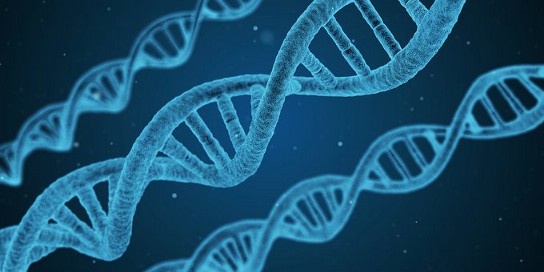Insights
A Precise Future for Healthcare.

Our world has grown increasingly personalized. We can bank, dine, shop, make friends, debate news, get a ride, get a date, share personal events and do just about anything with a few swipes of our thumbs — and do it “our way.” The idea of a personalized, individual approach to meeting consumer needs has reshaped industry after industry, and how healthcare is catching on. Until recently, doctors and scientists have been seeing patients and identifying treatment options using a “one size fits all” approach — an approach that treats the illness, but not necessarily the patient.
A new horizon is opening for healthcare that promises to be every bit, if not more, powerful than the consumer trends driven by Silicon Valley. When electronic health records (EHRs) were introduced a decade ago and mandated in 2014, they were just a start to this change. This new frontier is an approach called precision medicine and it promises to deliver tailored care for patients.
This transformative approach to medicine incorporates individual patients’ needs, family histories and lifestyles to determine the right treatment, for the right patient, at the right time. While precision medicine has also been coined individualized or personalized medicine, I think most of these monikers undersell its potential. It is personal and individual, but precision medicine is beginning to change and improve healthcare for everyone. A more appropriate name for it might be the “healthcare of the future.”
The philosophy is uniquely grounded at the intersection of analyzing Big Data for insightful trends and connecting with others to understand the personal needs of patients as people with lives, families, wants and needs. We’re having conversations about our family history, how we live, where we live, what we eat, so much more, so that our doctors can apply who we are and how we live to what treatments will work most effectively for our unique needs. Although we may not realize it, we’re receiving these tailored treatments today. The process of improving eyesight through getting the right glasses, hearing tests to identify how well you hear in each of your ears, and receiving a blood transfusion to match your blood type, are all completely patient-centric processes.
Precision medicine is about the patient, but it’s also about making sure that healthcare professionals are supported by data when they make their treatment decisions. This data improves provider confidence and drives down hospital readmissions — meaning we’re treated the first time and don’t need additional care. Even more, this data helps physicians understand different at-risk communities, become more engaged in preventative care and build better relationships with their patients. All of these things make healthcare more affordable at the individual, hospital, state and federal levels.
Powered by precision medicine, we have the potential to change the way we prevent and treat disease, how we talk to our doctors, what we know about our health and what treatments will be most effective. With this approach, we shift away from understanding just the condition and focus on how to maintain health throughout the course of a person’s life.